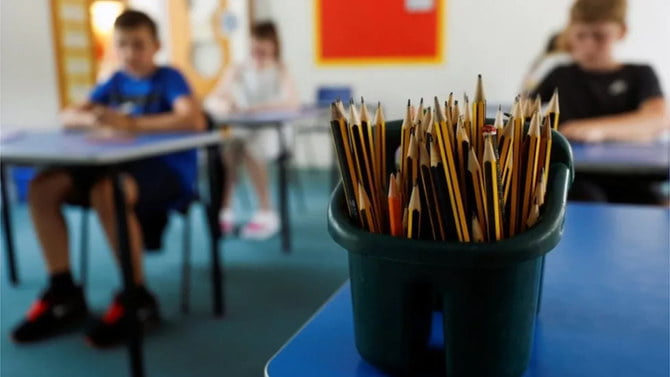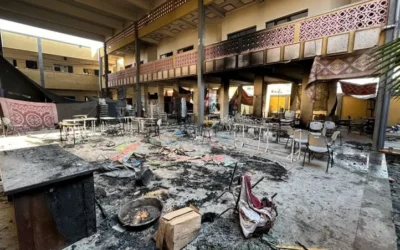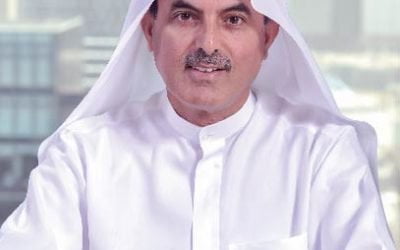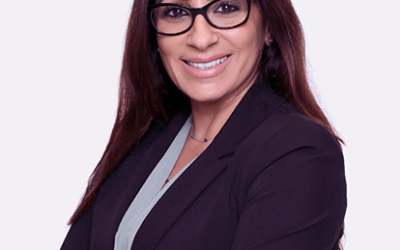Education can be the path toward a peaceful future
The sixth International Day of Education was observed last week. This is a day dedicated to celebrating the profound impact of education as a fundamental human right and a catalyst for sustainable development. This year’s theme, “Learning for Lasting Peace,” resonates profoundly in a world marred by violent conflicts, discrimination and hate. It compels us to confront a crucial question: How can education empower our relentless pursuit of lasting peace?
Established by the UN in December 2018, the International Day of Education highlights the pivotal role of education in realizing the Sustainable Development Goals, with a particular focus on Goal 4 — quality education for all. The day has served as a platform for governments, organizations and individuals to assess educational progress, confront challenges and work to expand access to quality education globally.
In an era marked by escalating conflicts and a distressing surge in discrimination, racism, xenophobia and hate speech, the significance of this day cannot be overstated. The repercussions of such violence know no borders, impacting individuals irrespective of geography, gender, race, religion or politics, both in the physical and digital realms.
Education, as a cornerstone of societal progress, must be harnessed to empower individuals and communities to build lasting peace, as it instills the knowledge, values, attitudes, skills and behaviors needed to become agents of peace. It equips individuals with the tools to understand, respect and appreciate diverse cultures and perspectives, fostering inclusivity and tolerance. Nations and communities that invest in education experience greater long-term stability and resilience to external and internal threats.
Several regional organizations are noteworthy for their commitment to these objectives. The King Abdullah University of Science and Technology, a renowned research university, prioritizes research and innovation, while running educational and outreach programs to promote STEM (science, technology, engineering and math) education within the country. In Riyadh, Princess Nourah Bint Abdulrahman University stands as one of the world’s largest women’s universities, empowering women through education. The Saudi Arabian Educational and Cultural Mission supports Saudi students studying abroad, including those pursuing higher education, by providing scholarships, guidance and educational resources.
Beyond Saudi Arabia, the Abdulla Al Ghurair Foundation in the UAE has set a strategic goal to provide 200,000 Emirati and Arab youths with high-quality education and innovative solutions to elevate their livelihoods. The foundation strives to ensure inclusive and equitable quality education through knowledge and technology partnerships, aligning with Sustainable Development Goals 4, 8 and 17.
Nations that invest in education experience greater long-term stability and resilience to external and internal threats.
Ehtesham Shahid
Education also plays a pivotal role in conflict prevention and resolution. It empowers individuals to engage in constructive dialogue, negotiate peacefully and find common ground in spite of differences. Education enables us to address the root causes of conflicts, such as poverty, inequality and social injustice.
The International Day of Education is an annual barometer of global progress toward SDG 4. It brings together stakeholders to discuss challenges, share best practices and renew commitments to expanding access to quality education. This collaborative effort is essential in ensuring that education reaches marginalized and disadvantaged communities, leaving no one behind.
In recent years, the observance of this day has adapted to the digital age, incorporating social media campaigns, webinars and virtual events that can reach a broader audience. These initiatives amplify the message about the importance of education and facilitate global conversations on its role in achieving peace.
Numerous organizations are tirelessly working to achieve this objective on a global scale. The United World Colleges is an international educational movement uniting young people from diverse backgrounds to emphasize experiential learning, intercultural understanding and community service. Seeds of Peace, meanwhile, brings together young people from conflict-affected regions, fostering dialogue, leadership development and conflict resolution training. Initiatives like the Monaco-based Peace and Sport leverage sports to promote peace, reconciliation and social inclusion.
Student exchange programs promote cultural exchanges, fostering cross-cultural learning and international cooperation and contributing to peaceful relations between countries. Interfaith and religious education programs encourage understanding among various faith communities, promoting tolerance and collaboration while reducing religious-based conflicts. Various organizations and institutions offer conflict resolution and peace-building workshops and training for students, educators and community leaders.
The urgency for an active commitment to peace has never been more evident. Education stands at the heart of this endeavor. This year’s theme of learning for lasting peace must be transformative, giving learners the knowledge and skills to become community peace builders. Even though it is a widely shared goal, achieving it remains a complex and multifaceted challenge. It requires access to quality education and a curriculum promoting values of peace, tolerance and respect for human rights.
Learning for lasting peace is a pervasive goal to build a more peaceful and just world. It is an aspiration that resonates with individuals and societies that are seeking to prevent conflicts, resolve disputes and promote the well-being of all people. The effectiveness of these initiatives often depends on their context and the stakeholders’ commitment. Successful peace education programs address the root causes of conflicts, promote dialogue and empower individuals and communities to work together for a more peaceful future.



